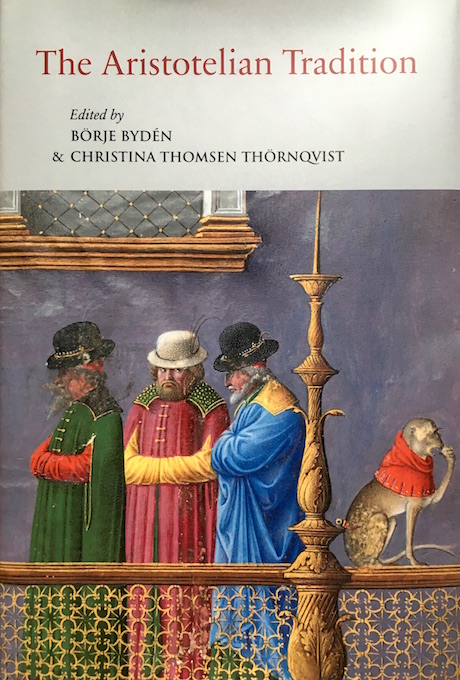The Greek philosopher Aristotle, born 384 BC, is among those who have made the greatest impression on Western philosophy, and his system of dividing knowledge into physical, metaphysical, logic and ethics remains influential to this day. Aristotle’s comprehensive body of work includes the earliest known study of logic, containing questions that remain a part of our way of thinking. During the Middle Ages, Aristotelian metaphysics influenced Islamic and Jewish philosophers and remains an influence on Christian theology to this day.
Parts of Aristotle’s writings were translated into Arabic and over the centuries countless thinkers have left behind them works inspired by him; including Avicenna, Averroës Apuleius, Boethius, Porphyry and Plethon.
 Contributors to the book include many leading international scholars who have analysed these antique and medieval texts in Greek and Latin. Since 2013, the University of Gothenburg has hosted the research programme Representation and Reality: Historical and Contemporary Perspectives on the Aristotelian Tradition.
Contributors to the book include many leading international scholars who have analysed these antique and medieval texts in Greek and Latin. Since 2013, the University of Gothenburg has hosted the research programme Representation and Reality: Historical and Contemporary Perspectives on the Aristotelian Tradition.
“However, this type of research, focused on textual criticism and history of philosophy, has a long tradition at the University of Gothenburg. Ingemar Düring, who was professor of classical philology from1945–1970, published several groundbreaking works and remains internationally recognised as one the greatest ever Aristotelian scholars,” explains Christina Thomsen Thörnqvist.

She is co-editor of the current book along with Börje Bydén. Both are researchers at the Department of Philosophy, Linguistics and Theory of Science. At the beginning of the ‘00s they defended their theses, in Latin and Greek respectively, at the then department of classics, dealing with various aspects of the reception of Aristotle in the Middle Ages. This was the beginning of their collaboration.
“At that time, we established contact with the University of Copenhagen, home since the 1950s to a well-established research environment in the field of classical philology with a specific focus on antique and medieval philosophy,” says Christina Thomsen Thörnqvist.

The collaboration between the two universities developed into a research network, The Aristotelian Tradition: The Reception of Aristotle’s Works on Logic and Metaphysics in the Middle Ages , which was coordinated from Gothenburg from 2009-2011. During this period, the research network expanded and gradually developed into Representation and Reality. Today, that research programme has eleven members from Europe, Asia and North America, with Christina Thomsen Thörnqvist as project leader.
Most of these researchers have contributed essays to the book The Aristotelian Tradition: The reception of Aristotle’s works on logic and metaphysics in the Middle Ages.
For more information about the book
please contact Christina Thomsen Thörnqvist, christina.thornqvist@gu.se
Learn more about the research programme
Learn more about our courses in classical philology and history of philosophy: Bachelor’s programme in Liberal Arts and Master’s programme in Ancient and medieval philosophy and classical philology
 Contributors to the book include many leading international scholars who have analysed these antique and medieval texts in Greek and Latin. Since 2013, the University of Gothenburg has hosted the research programme Representation and Reality: Historical and Contemporary Perspectives on the Aristotelian Tradition.
Contributors to the book include many leading international scholars who have analysed these antique and medieval texts in Greek and Latin. Since 2013, the University of Gothenburg has hosted the research programme Representation and Reality: Historical and Contemporary Perspectives on the Aristotelian Tradition.
